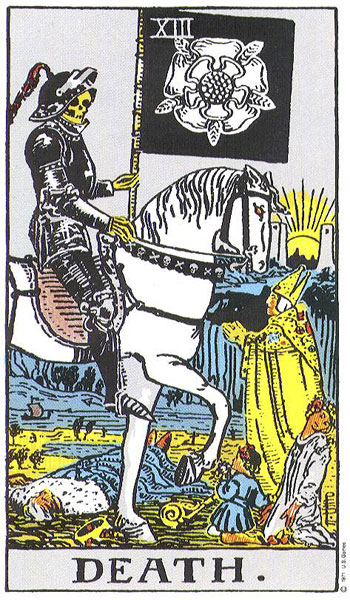|
|---|
Saturday, October 30, 2010
The immortal Bela Lugosi as Dracula
Tibetan Demon Mask
Years ago Chris Jaworski asked an
online discussion group to talk about horror movies and their appeal. I posted the
following:
The other day I was reading an article about
the Kielce pogrom. On July 4, 1946, some citizens of Kielce stoned, bayonetted,
and shot to death 42 Jews living in their midst. It was a scholarly article, meant
to be cool headed, and yet many sentences in it read like horror literature,
e.g.: "... they made rumour sound like truth and fanned the crowd's
emotions ... when the crowd had swelled to about one hundred, people began
gathering stones..."
And 42 Jews, who had survived
the Holocaust, were murdered. Why? Someone spread the Blood Libel.
Shirely Jackson's "The Lottery" comes to mind.
"The horror, the horror," from Joseph Conrad's Heart
of Darkness.
When I experience horror while reading
stuff like this, I think, why go to a horror movie? Why inject more of this
feeling into my life?
I've got a rarely diagnosed
illness and have been fighting for SSDI. I recently had a hearing in front of a
judge. The judge, in spite of my inches thick file of medical records, and
inches thick file of medical journal articles, and corroborating testimony from
a civil rights attorney and a nun, for heaven's sake, wrote, in his decision,
that I was "faking bad" (sic). That the condition doesn't exist, that
I have no symptoms, that we all were lying.
Needless to
say, we'll appeal, and in preparing the appeal I've been on the phone to lots
of local lawyers who have appeared before this particular judge. I've been told
by folks who interact with this guy professionally that he is an
"evil" man who enjoys denying benefits, especially to women, and,
most especially, to articulate women – and
that he has been suspended from the bench for the unfairness of his decisions,
and that he just recently returned from this suspension, and asked,
specifically, to be assigned to this particular work – hearing SSDI cases, although it is
notoriously low prestige and low pay.
In my
confrontations with this man, and with the illness in general and with the
experience of being poor and sick, I feel fear and horror all the time.
I really dislike feeling both fear and horror. I much prefer
the feelings I get from even a bad romantic comedy, and, most preferably, from
a great romantic comedy like "It Happened One Night."
I prefer this
to this.
In trying to understand why some like horror, I've thought
– who is the most likely audience for a
really scary horror movie?
Certainly other cultures have
had works of art that produce fear and horror, but often these couldn't best be
compared to American horror movies. Usually, folk tales or dramas that
incorporate fear and horror also contain humor, uplift, long, boring,
exposition that emphasize the importance of tribal values.
It seems – is this correct? – that the concentration of fear and horror in
American horror films is a diagnostic characteristic of the genre.
Who are the biggest audiences of such movies? American
teenagers, no? And American teenagers are a very protected audience. Why would a
sheltered, protected audience choose to plunge into fear and horror? Is it a
hunger for emotions that don't occur in sheltered, protected lives?
But this isn't always the case. Roman Polanski made a couple
of highly praised, scary and horrible movies. "Knife in the Water"
and "Rosemary's Baby." And he's had no shortage of real horror in his
life. He lived through WW II in Poland.
Anyway ... I
wish I could figure out how to express how my thoughts and feelings about a man
who makes a career out of destroying the lives of poor and sick people is
interacting, in my head, with thoughts of "The Blair Witch Project"
and horror in general.
I guess my illness and my
encounters with individuals like this judge has hammered home to me at every
turn, since I got sick, anyway, what I suspect people feel, and choose to feel,
while watching horror movies: that the human body is not integral, that our
convictions of our own autonomy are delusions –
no, I've never quite turned into Linda Blair as a possessed kid, but, I
can't, single handedly, hold back disease and keep my body from changing in
ways I don't like. I am constantly reminded that apparently innocent scenes and
people can, without warning, erupt into terror and threat. There is a
mindlessly destructive, death-hungry, pain-hungry urge in the human make up,
and that urge occasionally has its way, while rationality and compassion are
made impotent and thrust to the sidelines.
If you're not
a sheltered American teenager, and you feel you have quite enough fear and
horror in your life, thank you, does a movie like "The Blair Witch
Project" have something to offer? The movie advertises itself by
announcing that all the protagonists are dead, or at least missing. There's no
triumph of the human, the rational, the compassionate, over fear and horror. Fear
and horror win. Why is there an attraction to that?
Or,
is there a sense of trimuph because the viewer assumes he'll be alive when the
movie is over?
Could it serve as does the Tibetan Book
of the Dead, or even initiation rituals –
this is how bad it gets. Let go of your attachment to the goodies of
life. After you've completely let go, go back into life, acknowledging that all
you love and rely on is an illusion, or, maybe, a choice, a product of your
moment to moment choice making? And that very choice making makes you heroic
and triumphant?
Needless to say, all these questions are
inchoate...
0 Comments:
Subscribe to:
Post Comments (Atom)


















